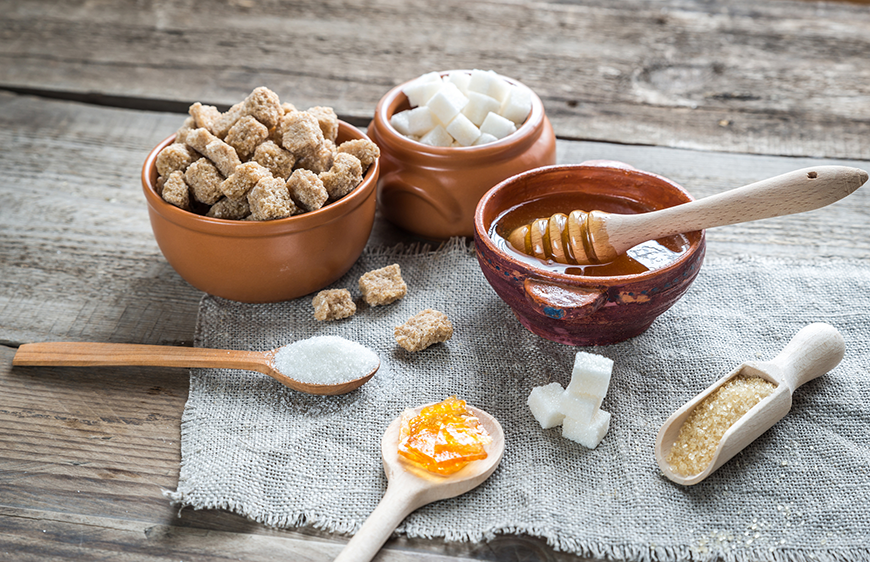Organic sweeteners, also known as natural sweeteners or alternative sweeteners, are a healthier alternative to traditional table sugar (sucrose) because they are made from natural sources and often have a lower glycemic index, which means they have a slower effect on blood sugar levels.
There are several types of organic sweeteners available, including honey, maple syrup, agave nectar, coconut sugar, and stevia. These sweeteners can be used as substitutes for sugar in a variety of ways, including in beverages, baked goods, and as a topping for cereal or fruit.
Honey is a sweet, thick liquid made by bees from the nectar of flowers. It contains vitamins, minerals, and antioxidants, and has been used for centuries as a natural sweetener. It is sweeter than sugar, so you may need to use less of it to achieve the same level of sweetness. Honey is often used as a sweetener in tea, coffee, and other beverages, and can also be used in baking and cooking.
Maple syrup is a sweet, amber-colored liquid made from the sap of maple trees. It has a distinct flavor and is often used as a sweetener in baking and cooking. It is lower on the glycemic index than sugar, and contains some vitamins and minerals, including zinc and manganese.
Agave nectar is a sweet, syrup-like liquid made from the sap of the agave plant. It is sweeter than sugar, so you may need to use less of it to achieve the same level of sweetness. Agave nectar has a lower glycemic index than sugar, which means it has a slower effect on blood sugar levels. It is often used as a sweetener in drinks, such as cocktails and smoothies, and can also be used in baking and cooking.
Coconut sugar is made from the sap of the coconut palm tree and has a caramel-like flavor. It is lower on the glycemic index than sugar, and contains some vitamins and minerals, including iron, zinc, and potassium. It can be used as a substitute for sugar in baking and cooking, and can also be used as a topping for cereal or fruit.
Stevia is a sweetener made from the leaves of the stevia plant. It is much sweeter than sugar, so you may need to use less of it to achieve the same level of sweetness. Stevia is a popular choice for people with diabetes or who are trying to reduce their sugar intake because it has a very low glycemic index and does not affect blood sugar levels. It can be used as a sweetener in beverages, such as tea and coffee, and can also be used in baking and cooking.
In addition to these sweeteners, there are also several artificial sweeteners available, such as aspartame, sucralose, and saccharin. These sweeteners are made in a laboratory and are much sweeter than sugar, so you may need to use less of them to achieve the same level of sweetness. They have been deemed safe by regulatory agencies such as the US Food and Drug Administration (FDA), but some people may still have concerns about their safety.
One of the main benefits of using organic sweeteners or sugar substitutes is that they can help reduce the risk of developing chronic diseases such as obesity, type 2 diabetes, and heart disease. Consuming too much sugar has been linked to these conditions, and reducing sugar intake can help improve overall health.
In conclusion, organic sweeteners and sugar substitutes are a healthier alternative to traditional table sugar because they are made from natural sources and often have a lower glycemic index. They can be used in a variety of ways, including in beverages, baked goods, and as a topping for cereal or fruit. Some common types of organic sweeteners include honey, maple syrup, agave nectar, coconut sugar, and stevia. While artificial sweeteners can also be used as sugar substitutes, some people may have concerns about their safety. Overall, using organic sweeteners or sugar substitutes can help reduce the risk of developing chronic diseases such as obesity, type 2 diabetes, and heart disease, and can improve overall health.
Gillco is the leading bulk organic sweetener distributor.






